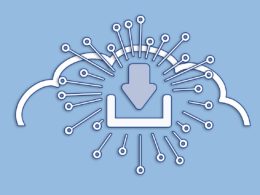Businesses are always looking for ways to streamline their financial processes, enhance data accuracy and analysis, and enable real-time insights. Financial software is a cost-effective way to achieve all of these goals. Not only does it offer automation of repetitive tasks and integration with other business systems, but it also enables greater scalability and adaptability in the future.
Streamlining Financial Processes
Financial software can help you streamline your financial processes, reduce costs and improve speed and accuracy.
Streamline Financial Processes
Financial software enables businesses to manage all aspects of their finances in one place. This includes accounting, payments and payroll systems all within one platform (or multiple platforms). This allows for seamless integration between departments which results in faster processing times for transactions as well as improved visibility into the business’ financial health at any given time. In turn this creates a more efficient workflow throughout all areas of the business while reducing errors along with their associated costs such as lost productivity or customer dissatisfaction due to delayed payments.
Improve Customer Service
As mentioned above, improving transparency around what’s happening with money coming into or going out of your business gives employees instant access to information. This enables them to make informed decisions based on facts rather than guesswork, ultimately leading to a better customer experience when dealing with your company. With specialized financial software development services, you can further enhance this transparency, ensuring efficient tracking and management of financial data across various channels such as credit cards, providing a seamless and reliable experience for both your team and customers.
Enhanced Data Accuracy and Analysis
Financial software can help you improve data accuracy and analysis. But how?
Enhanced Data Accuracy
With financial software, you can reduce the number of data errors that occur during the creation of your reports and analyses. This is especially useful for businesses that have a large volume of transactions to process each day or week. It’s easy for human error to creep into these tasks when they’re being done manually by someone who isn’t experienced with the company’s processes. By using automated systems instead, you’ll ensure that every piece of information gets processed correctly every time it comes through your system (and no one slips up).
Improved Data Analysis
Financial software also makes it easier for users at every level within an organization, from C-level executives down through middle management, to access information about their business operations without needing extensive training on how to use complex programs like Excel spreadsheets or PowerPoint presentations (which are often too complicated). This allows employees who aren’t experts in finance but still need access to financial data to do their jobs more effectively. For example, a middle manager who needs to analyze sales trends for their region but doesn’t have extensive knowledge of Excel can use a business intelligence tool that provides charts and graphs that show them how their numbers compare against other regions within the company (or even against industry averages).
Real-time Financial Insights
Real-time financial insights help you to make better decisions. The ability to see your business data in real time allows you to take action on what you see, even before the end of the month. This can be as simple as making sure that everyone is paid on time, or it could be something more complex like identifying opportunities for cost savings or new revenue streams. With real-time financial information at their fingertips, businesses can make smarter choices about how they spend money and plan for future growth opportunities.
Automation of Repetitive Tasks
Automation of repetitive tasks is another area where financial software can make a big impact on business productivity. The most common example is invoice processing, which involves a series of steps that must be completed by hand by your staff or yourself. These include data entry, validation, emailing and printing invoices for clients to sign off on and submit payment for them.
In addition to being time consuming for employees who have other responsibilities outside these repetitive tasks (which may include your most valued employees), manual processes also open up opportunities for human error in entering data or preparing documents incorrectly. By automating this process with software that allows users access via web browsers or mobile devices such as smartphones and tablets, there will be fewer opportunities for mistakes while also reducing labor costs associated with completing these tasks manually every month or quarter depending on how often they occur within your organization’s workflow cycle.
Integration with Other Business Systems
Financial software is integrated with other business systems. The importance of integration can’t be overstated, as it allows you to access all the data you need in one place. For example, if you want to see the status of your customers’ accounts or understand their spending habits, this information can be accessed through your financial software along with their contact details and other relevant information.
Integration also ensures that any changes made in one system are reflected in another automatically, no manual updating required! This makes it easier for users who are unfamiliar with both systems because they don’t have to learn two different interfaces; instead, they just use one interface and see everything they need right there on screen when they log into their account or application (or whatever).
Improved Decision-Making with Analytics
Financial software can help you make better business decisions. By providing access to data, it allows you to analyze the past, present and future of your company’s financial performance. This helps you make informed decisions about how much money should be invested in each area of operations, which will lead to improved business productivity.
Using analytics tools is an important part of improving decision-making processes for any business owner or manager that wants more control over their finances and greater understanding about how their investments are affecting profitability.
Scalability and Adaptability
Scalability and adaptability are two characteristics that will help you achieve your business goals. When a software program can scale with the business, it means that it can be used for different purposes at different times. For example, if you want to use a particular piece of financial software for accounting purposes only during one month but then switch over to using it for payroll during another month, this would be considered scalable.
Adaptability refers to the ability of a system or process (like a software application) to change its behavior based on changing circumstances or conditions without losing essential function or purpose. Being able to adapt means that your technology will continue working even as your needs shift over time, and that’s something every organization needs in order to remain competitive in today’s market!
Future Trends in Financial Software
In the future, financial software will continue to advance in sophistication. The increasing availability of data and advances in machine learning will allow for more automated processes, which will make it easier for companies to handle their finances without having to hire additional staff or take on extra overhead costs. Additionally, as technology becomes more user-friendly and accessible through mobile devices, it’s likely that we’ll see even more people using this type of software on a daily basis.
Finally, cloud technology has already made it possible for many businesses (even small ones) to access their financial data from anywhere at any time, and there’s no reason why this trend won’t continue into the future!
Conclusion
The bottom line is that financial software can help you to streamline your business operations, increase productivity and profitability. This is especially true if you use the right tools and implement them correctly. So if you’re looking for ways to get more out of your company, it may be time for an upgrade!












